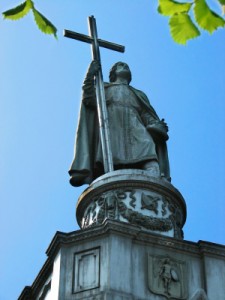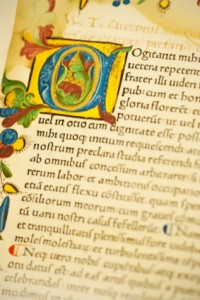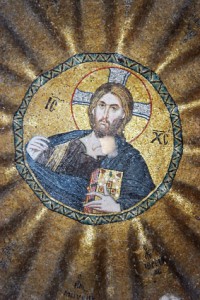
Thanks to the genius of modern of travel, we boarded a plane in the USA and after 18 hours of travel, including two stops to change planes we were arriving halfway around the world in Istanbul, Turkey f/k/a Constantinople f/k/a Byzantium. And as amazing at it would have been to Constantine, Theodosius or Justinian to know the future would provide such speedy travel, I suspect 1,000 years from now our descendants will look back and consider primitive the notion of cramming 300 people into a tin can with wings and adding thrust to move it through the air from place to another.
On the drive from the Istanbul airport to our hotel we got our first up-close look at Istanbul. I’d seen pictures on the Internet before arriving and had a pretty good idea of what to expect, but I was still surprised it wasn’t more advanced like modern cities in the West. Granted, we drove through the old city and haven’t spent much time in the modern part, but still I thought I’d find a more prosperous-looking 21st century city than the one we saw.
Perhaps my surprise is a result of the contrast between modern Istanbul and the awe-inspiring picture of Constantinople various authors have helped paint in my mind, a city that caused visitors a thousand years ago to say things like,“We knew not whether we were on heaven or earth” and “…on earth there is no such splendor or such beauty,” and “we only know that God dwells there among men.” When it was the heart of Christendom, a city devoted to King Jesus, a city whose rulers were sometimes criticized for loving theology more than governing, it was a city of unimaginable prosperity, learning and cultural leadership. But we are just on our first day, and we will see more tomorrow.
Today was a day to get acclimated, get some rest and get ready for our first day of touring tomorrow. We did have a nice dinner while enjoying a view of the Bosphorus (see picture shot with my iPhone 4), probably not too far from where Darius I had a pontoon bridge constructed and crossed 2,500 years and crossed in pursuit of the Scythians. Darius’s son, Xerxes (see Esther), would later repeat the feat in 480 B.C. much further south at Hellespont, beyond the Sea of Marmara, where he crossed on his way to fight Leonidas and the 300 at Thermopylae. These waters, separating the East from the West, have been a pivotal venue in history.
Until tomorrow… GS




